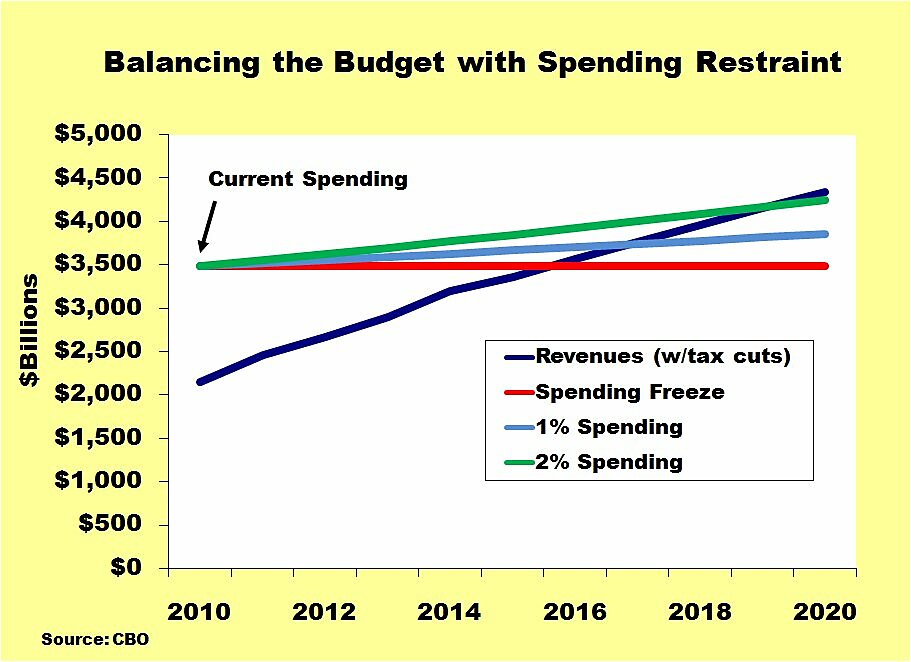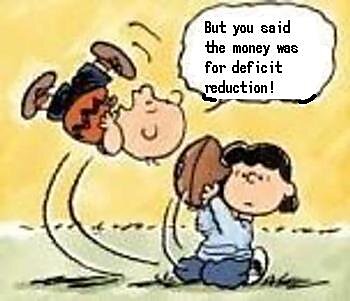I have many pet peeves, but one that causes me endless frustration is the Washington “spending cut” scam. This happens when politicians increase spending, but claim that they’re cutting spending because they previously had planned to make government even bigger.
The proposal unveiled yesterday by the Co-Chairman of President Obama’s Fiscal Commission is a good example. If you read through their report, it sounds like there are lots of spending cuts. But they never explain that these supposed cuts are really just reductions in previously-planned increases.
Here’s the bottom line. As shown in the graph, it is quite simple to balance the budget (and permanently extend all of the 2001 and 2003 tax cuts) if politicians simply limit spending growth. You can balance the budget within a few years with an overall cap on spending at current-year levels. But if you prefer a more moderate approach, you can let spending increase 2 percent each year and balance the budget by the end of the decade.
The proposal from the Fiscal Commission, incidentally, does not balance the budget — even though they have a big tax increase (which they assume will have zero negative impact on economic performance).
So what does this mean? Well, we know that the budget can be balanced (with the 2001 and 2003 tax cuts) if spending grows two percent each year. And we also know that the Fiscal Commission increases the tax burden, yet still doesn’t achieve fiscal balance. So this means that they must be letting spending grow much faster than 2 percent each year. I’m guessing 4–5 percent annual spending growth.
In other words, the Fiscal Commission is asking us to pay higher taxes so that government spending can grow at twice the rate of inflation. That’s not a good deal.
Moreover, that’s almost certainly a ridiculously naive best-case scenario. If past behavior is any indication (and it is), politicians will spend any additional tax revenue. Whenever there’s a budget summit, the folks who want higher taxes make all sorts of empty promises about spending discipline. And when the other side caves in on taxes, they grab the money and have a party.


